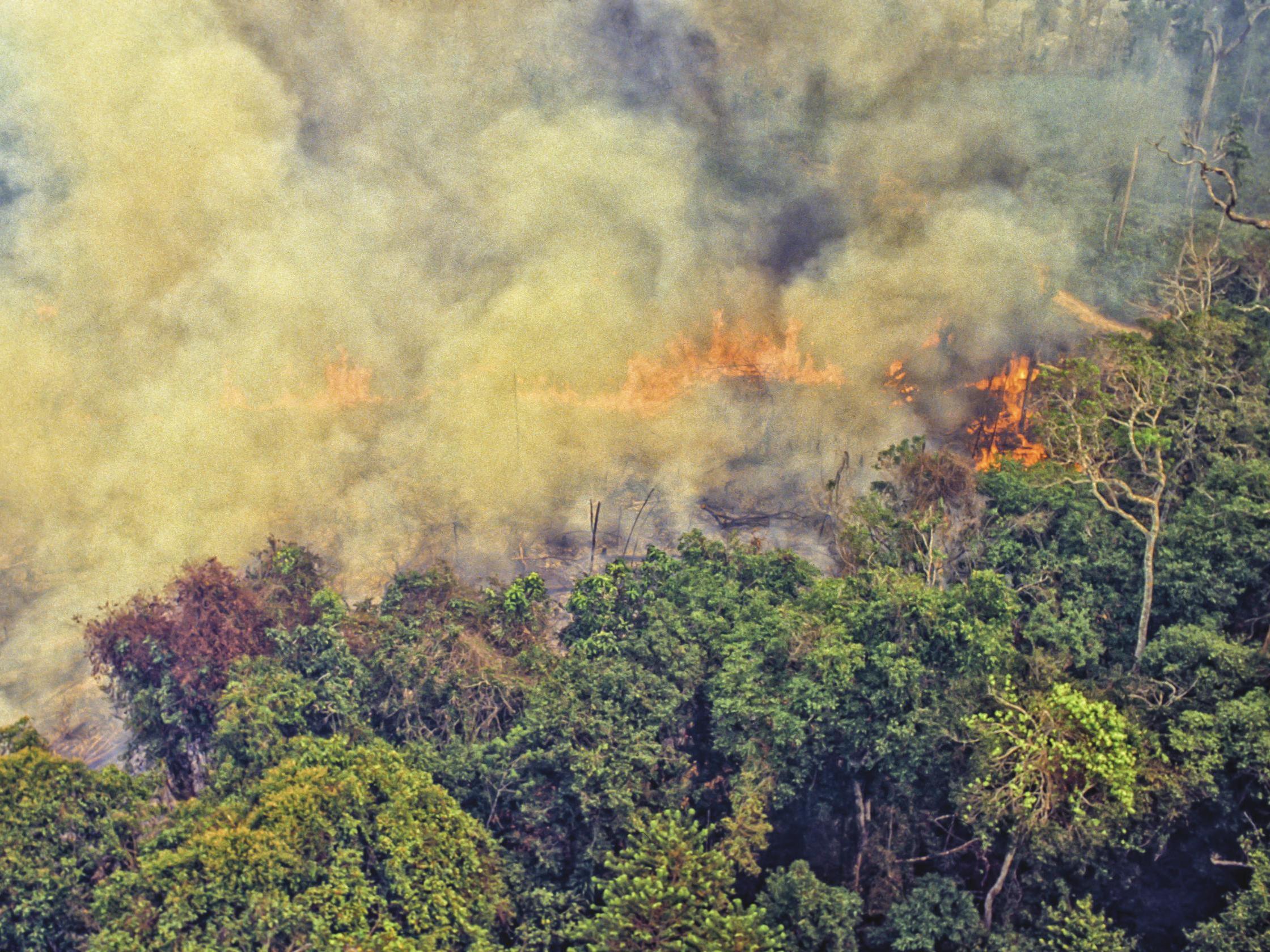This website uses cookies so that we can provide you with the best user experience possible. Cookie information is stored in your browser and performs functions such as recognising you when you return to our website and helping our team to understand which sections of the website you find most interesting and useful.

In June, 2,258 fire outbreaks were detected across the Amazon rainforest — the highest number in 13 years, and 36 per cent higher than the average over the last decade.
Brazil’s government space research agency, INPE, said the blazes represent a 20 per cent increase from the devastating 1,880 fires in June 2019 which came ahead of global outrage at the destruction of the vital rainforest.
The vast majority of the fires are caused by human activity - mostly slash and burn deforestation - to create grazing land for cattle or make space to grow crops, according to the Amazon Environmental Research Institute.
International demands for goods including soy, timber, paper, beef and leather are among the key drivers of such activity.
New data from the WWF and the RSPB reveals the extent of the UK’s demand for goods linked to the destruction.
Brazil represents 13.9 per cent of the total UK overseas land footprint, meaning we currently rely on an average of more than 800,000 hectares of land - much of which was once rainforest – to supply our demand for agricultural products. This is equivalent to five times the size of Greater London.
A third (28 per cent) of the UK’s total overseas land footprint, used to satisfy our annual demand for products including palm oil, timber, soy and cocoa, is still linked to countries assessed to be at high or very high risk of deforestation, destruction of other natural ecosystems and human rights abuses.
These include Brazil, Indonesia and the Ivory Coast, according to related research published in May by the RSPB.
“Unsustainable production often results in large-scale deforestation and is linked to devastating fires,” the WWF said.
The organisation is calling for the UK government to introduce new laws and policies to take deforestation and the destruction of other natural habitats out of supply chains to help prevent these fires from occurring.
The charity is also urging the government to ensure that post-Brexit trade deals won’t contribute to environmental destruction.
Mike Barrett, executive director of science and conservation at WWF UK, said: “It’s no coincidence that fires have already sparked in Brazil this year – and in the areas that have suffered deforestation from commodities including soy.
“These fires are not a natural occurrence in the Amazon – they are set deliberately to burn trees that have been illegally cut to clear the way for agriculture.
“But the cost is too high. The UK must take a stand against the destruction by bringing in new laws and policies to cut deforestation out of our supply chains. UK consumers should not be forced to unwittingly contribute to the Amazon burning.”
Martin Harper, director of global conservation at the RSPB, said: “In the UK, communities are fiercely protective of their local beauty spots and nature habitats – planning applications to cut down woodlands time after time provoke a powerful backlash from residents.
“We wouldn’t want to tear up the greenbelt for commercial use here, but importing products linked to the destruction of the Amazon rainforest simply outsources the destruction of nature. If the UK government wants to be taken seriously as a global environmental leader as host of the COP26 climate summit next year, it needs to urgently take action and introduce new laws to ensure agricultural supply chains are not wrecking the planet.
“It is time for the government to stop passing the buck to consumers.”
The WWF said alongside beef production, soy has historically been one of the commodities responsible for deforestation in the Brazilian Amazon and destruction of its neighbour, the species-rich Cerrado grassland savannah.
In 2017, only 27 per cent of soy produced globally was officially certified as not being associated with deforestation or destruction of habitats. This means almost 75 per cent could be a deforestation threat to landscapes globally.
In the UK just 14 per cent of the soy imported was “deforestation free” in 2017, according to the European Soy Monitor report.
In Brazil, just 2.8 per cent of all soy produced was certified sustainable.
The UK is dependent on soy imports from Brazil – nearly half of which comes from the Mato Grosso state. The WWF said the volumes imported from this one state are so large that 93,000 hectares of soy plantations are needed – equivalent to more than half the size of Greater London.
Deforestation in the Amazon parts of Mato Grosso increased by 19 per cent last year. Soy production in Mato Grosso is likely to be putting pressure on forests either directly or indirectly (by replacing cattle ranches which themselves replaced forests).
Of the 2,248 fire outbreaks detected in the Amazon during June, 58 per cent were in Mato Grosso state.



 Africana55 Radio
Africana55 Radio 

